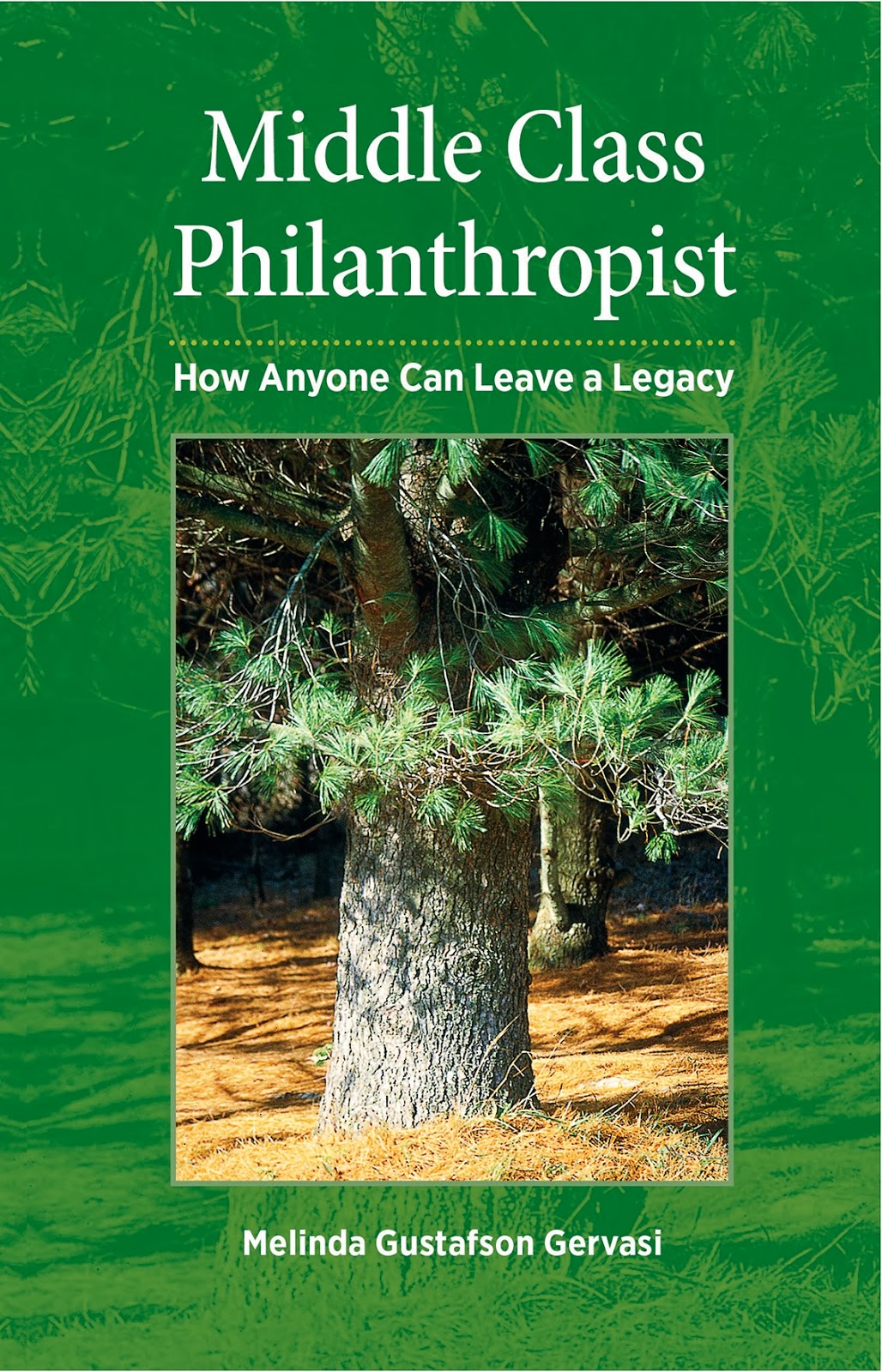Predating democracy, capitalism,
organized religion, and as old as humanity itself, philanthropy
exists because things often go wrong, and things can always be
better. Current understanding of philanthropy focuses on images of
gated estates and the means of Bill Gates or Oprah. Stereotypes
continually reinforced in news reports – internet mogul leaves
$5.3 million art museum! – or something along those lines. An
academic review of the word philanthropy reveals it to be a noun
meaning generous help or benevolence towards one's fellow man.
Philanthropy is not an exclusive act of those with a seven-figure net
worth, anyone can leave a legacy.
Daily I work with clients in my estate
planning and probate legal practice who make bequests to favored
charities. My clients fall solidly into “the middle class”, yet
they give, and those gifts make a difference in the world of a
nonprofit. It was from those client meetings that the idea to write
Middle Class Philanthropist: How anyone can leave a legacy was
born. Read more about the book on its publishing page, www.purpleowlpress.com
At the surface, most literature related
to the benefits of being philanthropic relates to tax breaks. The
benefits of philanthropy, however, extend beyond the tax code. A
well thought out final gift at your death to the nonprofit where you
volunteered on a routine basis can produce a perpetual stream of
revenue. Giving at the end-of-life also sets an example for your
children and grandchildren to do the same. And it simply feels good;
brain research shows charitable donations stimulate portions of the
brain associated with pleasure.
Inspired, but feeling the need for more
motivation to tackle the task of creating or updating a will and
other end-of-life documents? Focus on the the fact that $41 trillion
will pass from the baby boom generation to the next between 1998 and
2052. What might our world look like if ten percent or five percent
was directed to nonprofit organizations?
Gail Shefield, a woman profiled in the
book, saw this possibility and took control. Her will directed her
home to one nonprofit and her remaining cash to another. The amount
given may be considered modest, but the sum provided a huge financial
boost to the financial situation of two nonprofits where she
volunteered working to stem feral cat populations. One word of
caution, sadly the nonprofit world is not void of fraud or scams.
Moreover, not including the full legal name of the organization you
intend to include can cause confusion and dispute.
Philanthropic giving does not even
require you to visit a lawyer's office. Consider updating
beneficiary forms for life insurance or retirement accounts to
include a nonprofit. My personal favorite form of philanthropy is
directing in-lieu-of-flowers donations to a specific cause or
nonprofit. The options are endless and within reach of anyone
motivated to make one final gesture of charity. Anyone can leave a
legacy.
Note, a blog is not legal advice but rather a forum for sharing thoughts and ideas. Please consult an attorney in your state for advice specific to your situation. If you would like to hear more about Middle Class Philanthropists please visit the events schedule. I am available for book talks and discussions, please contact me if you would like to schedule one for your place of worship, civic club, or favorite nonprofit.


No comments:
Post a Comment